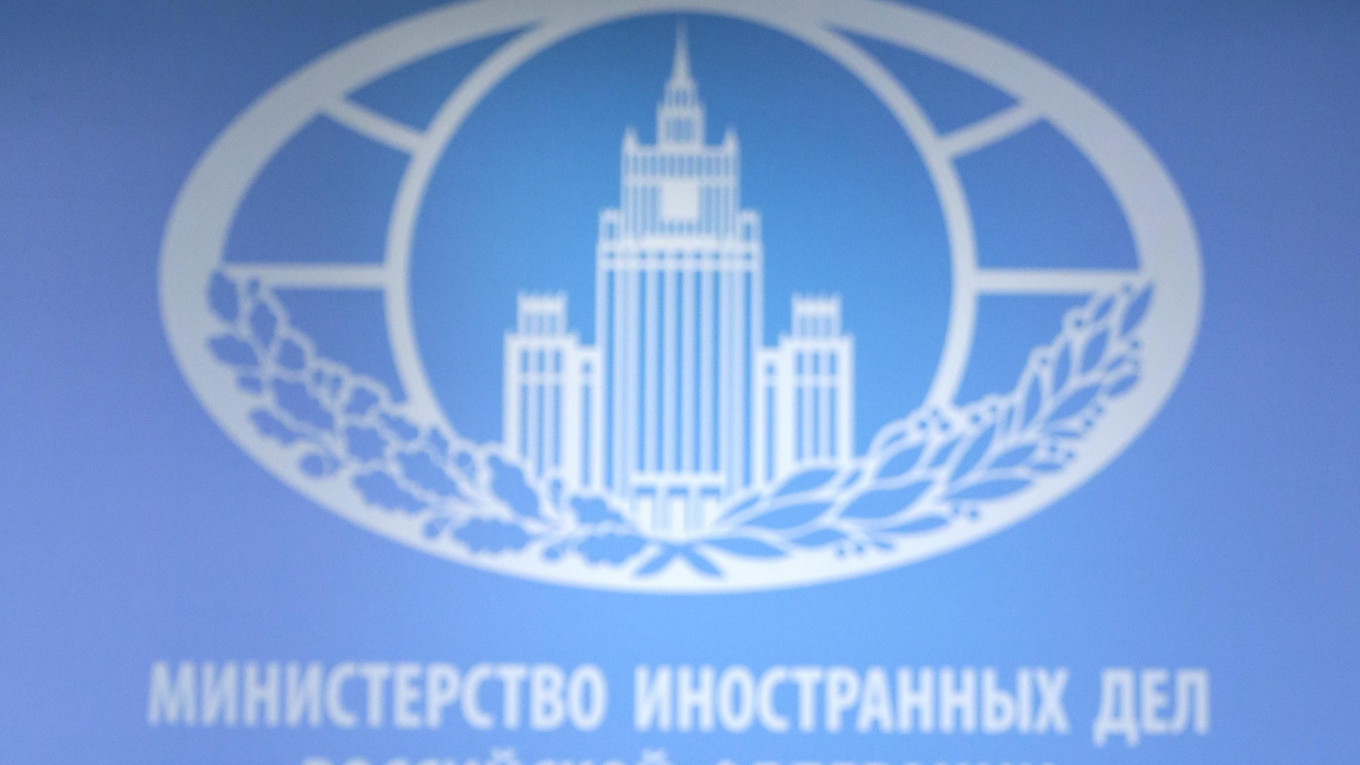The Russian Foreign Ministry has published a list of recommendations for citizens traveling the world. “General Elements of Behavior” offers a compendium of travel dos and don’ts, ranging from “It’s desirable in any country to show friendliness to the local population and be considerate of their way of life” to “Observe the rules of hygiene when visiting swimming pools and saunas.”
There are also some unexpected pieces of advice, like, “In countries with sizeable black populations, refrain from using the words ‘negro’ and ‘nigger,’ as well as their derivatives.” Also, when speaking to people in foreign countries, “observe a minimum distance of 50 to 60 centimeters [1.6 to 2 feet].”
Things get more interesting when Russia’s Foreign Ministry starts offering recommendations for how to behave in specific countries. The Moscow Times translates the government’s advice for Canada, France, Great Britain, Israel, and Kenya. American readers, you’ll be disappointed to learn that the U.S. isn’t singled out.
Canada
“Canada, where same-sex marriage was long ago legalized and there is a serious ‘obsession’ with gender equality, isn’t the best place for retelling ‘obscene male’ anecdotes and jokes about ‘the non-traditionals.’ In addition to public censure, in major metropolitan areas with compact ‘queer’ neighborhoods (in particular, Vancouver, Toronto, and Montreal), you risk penalties in the form of a fine or even felony charges for ‘hate crimes.’
“It’s better to refrain from demonstrating emotions when dealing with members of the opposite sex, in order to avoid allegations of attempted sexual harassment (on university campuses, the institution of the ‘public moral police’ is widespread).
“An important feature that distinguishes Canadians from Americans that you must bear in mind when communicating is their ‘sense of self-awareness and difference’ from Americans.
“Though foreigners sometimes find it difficult to distinguish one from the other, Canadian citizens can become very offended, if you compare their country to the United States.”
France
“It’s necessary to avoid any behavior toward women that might be regarded as an act of ‘sexism.’ It’s also desirable not to react to representatives of the LGBT community, and not to address them with any offensive words or gestures.
“In a cafe or restaurant, one addresses the waiter not as ‘garcon,’ but ‘monsieur,’ and the waitress as ‘madam.’ Russian citizens who do not speak French are strongly recommended to ask for a menu in Russian or English. Attempts to pronounce the names of meals in French without knowledge of the rules of the French language can lead to conflicts.
“In France, it’s customary to greet one another in public places: public transportation drivers, store clerks, concierges, and hotel staff.
“It is not advisable to demonstrate disrespect for the French language, trying to ‘get a point across’ to French people in Russian, and then getting angry that they don’t understand you.”
Great Britain
“The British are characterized by the following traits of nonverbal communication:
– raising the eyebrows (this is perceived as an expression of skepticism);
– rotating your finger around your temple (this gesture means ‘decide for yourself,’ which isn’t what it means in other countries);
– raising the middle and index fingers, with the palm of the hand towards the recipient is a sign of approval, in the style of the ‘V for Victory’ sign, but faced the other way can be a serious insult to other people;
– the middle and index finger folded together and raised in the air (this gesture means ‘Just you wait. I’ll get you!’); and
– the extremely rude ‘middle finger’ gesture (a raised middle finger implies an obscene refusal to a request).”
Israel
“In general, the tolerance threshold for spoken obscenities in Israel is low. Here, you’ll often hear distorted Russian obscenities originally popular among Jewish immigrants to Palestine in the early 20th century. But foreigners are advised to avoid Yiddish colloquialisms (‘putz,’ “schmuck’) and similar Arabic expressions (‘kus ummak,’ ‘sharmuta’), It’s inadmissible to use the word ‘zhid’ [kike] when addressing any Jew, even if he doesn’t understand Russian.
“Visitors to this country should bear in mind Israelites’ extreme sensitivity to virtually any criticism of the state of Israel itself, as well as criticism of any aspects of life in Israel.”
Kenya
“Comparing a Kenyan to a monkey can cause the very strongest reaction, as can rudely questioning a Kenyan’s mental abilities (knocking yourself on the head, as a gesture during conversation, is considered an insult). If you poke a Kenyan with your finger during conversation, it can also instigate aggression from him.”
You can read all the country-specific recommendations (in Russian) on the Foreign Ministry’s website here.
A Message from The Moscow Times:
Dear readers,
We are facing unprecedented challenges. Russia's Prosecutor General's Office has designated The Moscow Times as an "undesirable" organization, criminalizing our work and putting our staff at risk of prosecution. This follows our earlier unjust labeling as a "foreign agent."
These actions are direct attempts to silence independent journalism in Russia. The authorities claim our work "discredits the decisions of the Russian leadership." We see things differently: we strive to provide accurate, unbiased reporting on Russia.
We, the journalists of The Moscow Times, refuse to be silenced. But to continue our work, we need your help.
Your support, no matter how small, makes a world of difference. If you can, please support us monthly starting from just $2. It's quick to set up, and every contribution makes a significant impact.
By supporting The Moscow Times, you're defending open, independent journalism in the face of repression. Thank you for standing with us.
Remind me later.






